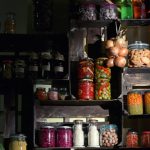The UK coffee industry has seen tremendous growth in recent years, with coffee culture becoming an integral part of British daily life. As competition intensifies, independent cafés and specialty coffee shops are searching for innovative ways to differentiate themselves and build loyal customer bases. Enter private label coffee—a game-changing trend that is transforming how coffee businesses operate and connect with their audiences.
What is Private Label Coffee?
Private label coffee refers to coffee products that are exclusively created for a specific business or brand. Unlike mass-produced coffee, private label offerings allow cafés and coffee shops to customise everything from the beans’ origin and roast profile to the packaging and branding. This level of personalisation provides businesses with a unique product that reflects their identity and values.
In the UK, where coffee drinkers value quality and authenticity, private label coffee has become an increasingly popular choice. It allows independent businesses to stand out in a crowded market while meeting the rising demand for distinctive, premium coffee experiences.
The Growing Trend of Private Label Coffee in the UK
The private label coffee trend is flourishing in the UK for several reasons:
- Rising Consumer Expectations
British consumers are more informed and discerning than ever before. They care about the origin of their coffee, its flavour notes, and the ethics behind its production. Private label coffee enables cafés to cater to these demands by offering tailored blends with clear, transparent sourcing. - Increased Focus on Branding
In today’s competitive coffee market, branding plays a crucial role in customer loyalty. Private label coffee allows independent cafés and specialty shops to create a product that aligns with their unique story, aesthetics, and values. This personal touch fosters a deeper connection with customers. - Support for Local Businesses
Many UK roasters now specialise in private label services, offering small-scale roasting and customisation options for independent cafés. By partnering with local roasters, businesses not only ensure quality but also support the local economy. - Adaptability to Trends
From single-origin beans to blends with sustainable certifications, private label coffee allows businesses to stay ahead of trends. Whether it’s creating a decaf option for health-conscious customers or offering seasonal blends, private labelling ensures flexibility.
The Impact on Independent Cafés and Specialty Coffee Shops
The rise of private label coffee has had a profound impact on independent cafés and specialty coffee shops across the UK. Here’s how:
- Brand Differentiation
Private label coffee gives businesses a distinct edge by offering something that customers can’t find anywhere else. A café can design a signature blend that becomes its hallmark, helping it stand out in a sea of generic offerings. - Enhanced Customer Loyalty
When customers associate a specific flavour or experience with a particular café, they’re more likely to return. Private label coffee fosters brand loyalty by creating an emotional connection between the customer and the business. - Higher Profit Margins
Private label coffee allows businesses to control pricing and margins. By offering a premium product under their own brand, cafés can charge a higher price while keeping production costs manageable. - Opportunities for Retail Sales
Many independent cafés have started selling their private label coffee for home use. This not only generates additional revenue but also extends the brand’s presence beyond the café. Customers can enjoy their favourite brew at home, further deepening their loyalty. - Flexibility in Product Offering
With private label coffee, businesses can experiment with new blends, roasts, and packaging to cater to different customer preferences. Seasonal or limited-edition coffees, for example, can create buzz and drive sales.
Challenges and Considerations for Private Label Coffee
While the benefits are compelling, entering the private label coffee market requires careful planning. Here are some key considerations for UK businesses:
- Sourcing the Right Roaster
Partnering with a reputable roaster is critical. Look for one that understands your vision and offers flexibility in terms of bean selection, roasting profiles, and packaging. - Initial Investment
Private label coffee often involves upfront costs for product development and branding. However, these costs can be offset by the potential for higher margins and increased customer loyalty. - Consistent Quality
Maintaining consistency is vital to building trust with customers. Ensure that your chosen roaster has rigorous quality control processes in place. - Brand Identity
Clearly define what your private label coffee represents. Whether it’s sustainability, luxury, or innovation, your product should align with your brand’s core values.
Success Stories in the UK
Several independent cafés and specialty shops in the UK have successfully embraced private label coffee to grow their businesses. For instance:
- Neighbourhood Cafés: Many local cafés have developed signature blends that reflect their community’s preferences, becoming go-to spots for coffee enthusiasts.
- Specialty Roasters: UK roasters like Pact Coffee and Climpson & Sons offer private label services that allow businesses to access ethically sourced, high-quality beans.
- Retail Expansion: Some cafés have launched their private label coffee in retail outlets and online stores, expanding their reach and boosting brand visibility.
The Future of Private Label Coffee in the UK
As coffee culture continues to evolve in the UK, the demand for personalised and high-quality experiences is expected to grow. Private label coffee is perfectly positioned to meet these needs, offering independent cafés and specialty shops a way to thrive in a competitive market. From building stronger customer connections to creating new revenue streams, private labelling is not just a trend—it’s a revolution.
Final Thoughts
Private label coffee is reshaping the UK coffee scene, giving independent cafés and specialty coffee shops the tools to stand out and succeed. By embracing this trend, businesses can offer unique products, foster customer loyalty, and establish themselves as leaders in a crowded market.
For UK coffee lovers, the rise of private label coffee means more choice, better quality, and a deeper connection to the brands they support. Whether you’re enjoying a signature blend at your local café or brewing it at home, private label coffee is here to stay—and it’s changing the way we experience coffee, one cup at a time.













